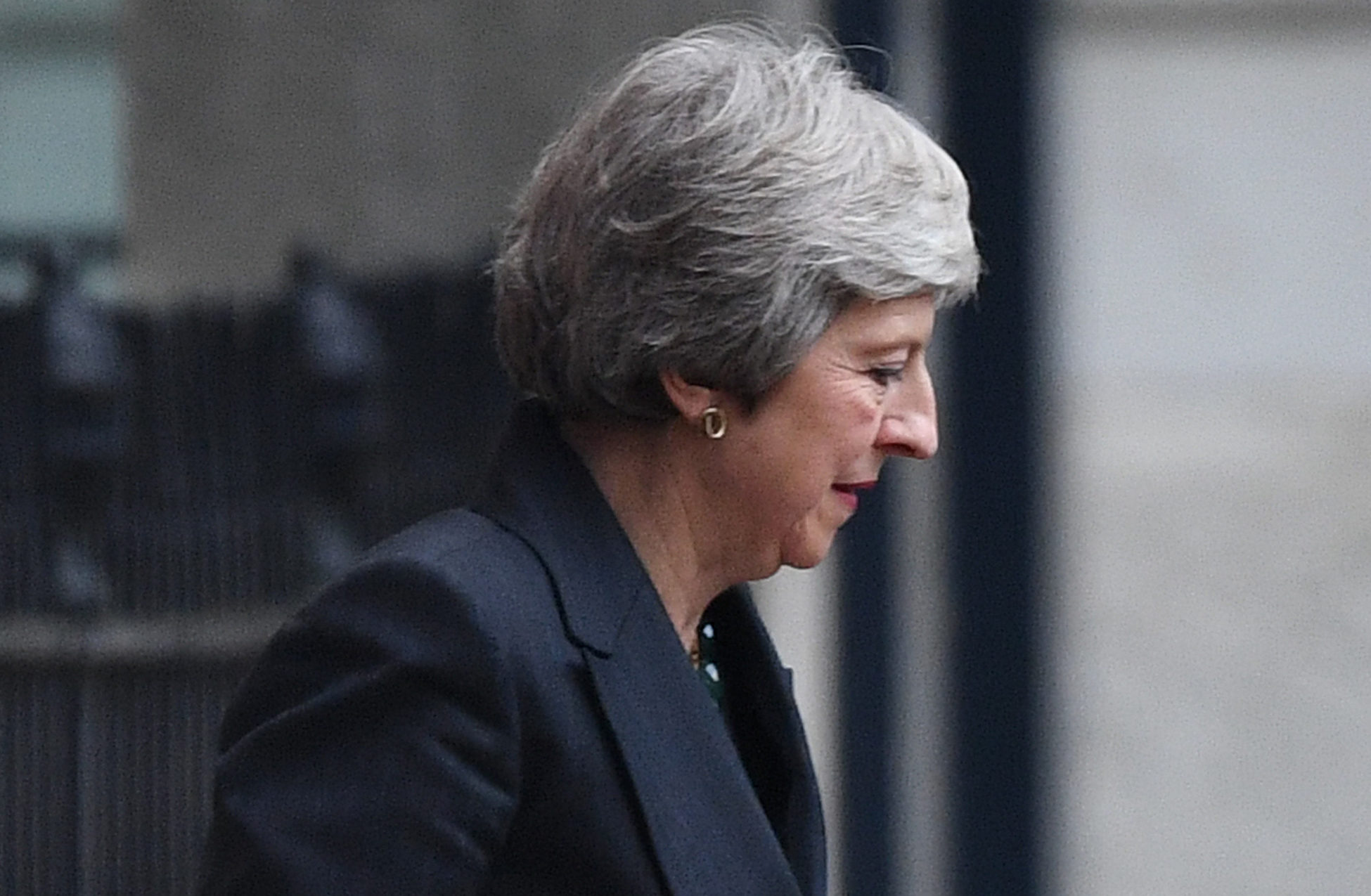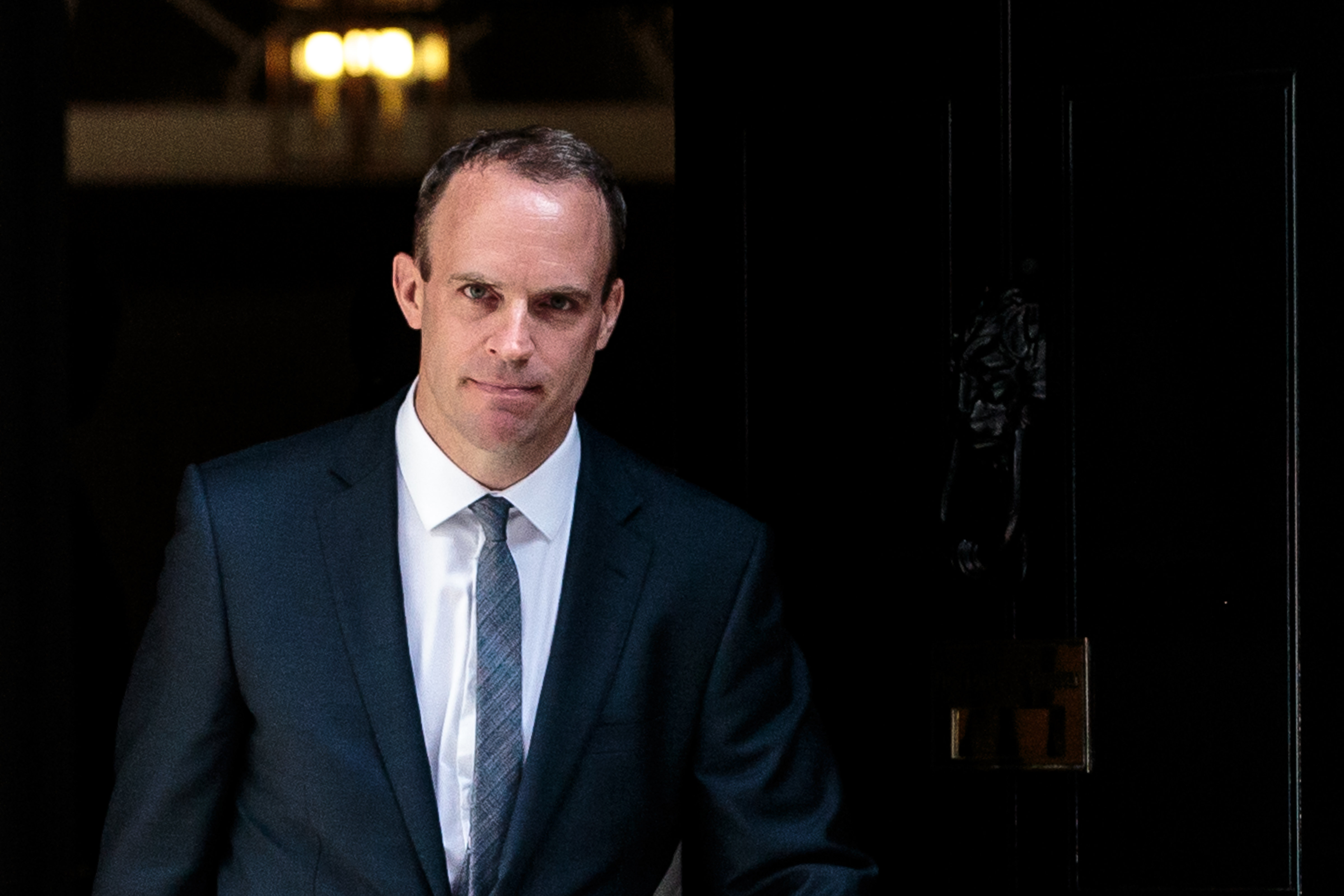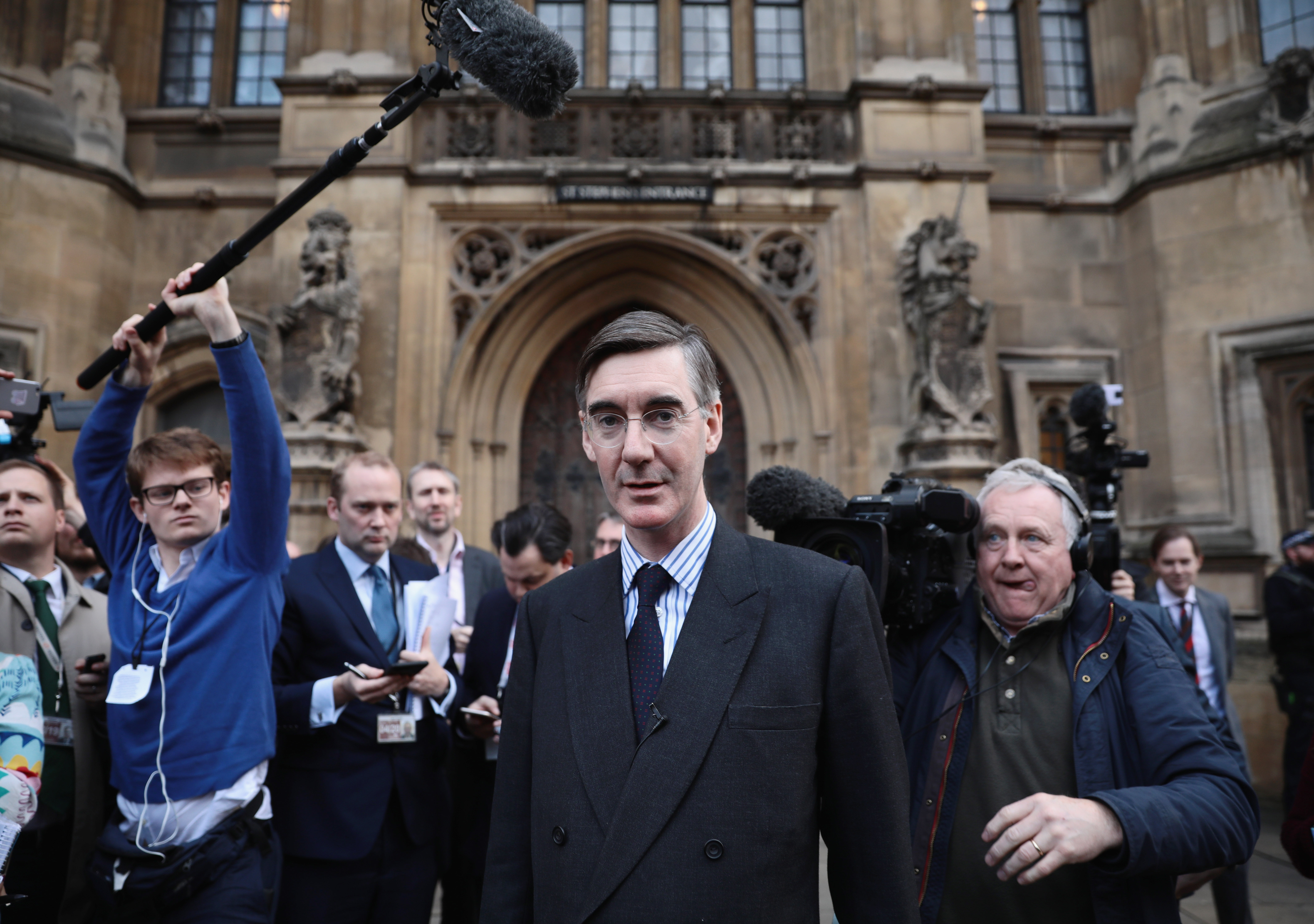
FOLLOWING last night’s lengthy discussions, Theresa May finally agreed a draft Brexit deal with her Cabinet.
But today, it all started to unravel and left the Prime Minister facing a potential vote of no confidence.
Here’s what happened on a dramatic day in the long-running saga of the Brexit negotiations.
Resignations
The Prime Minister announced last night that, after a marathon Cabinet meeting, ministers were backing her draft Brexit deal.
First thing this morning, however, one of those ministers quit… and it was the one in charge of Brexit.
Dominic Raab stepped down from his post as Brexit Secretary, saying that he “cannot in good conscience support the terms proposed for our deal with the EU”.
Explaining his resignation Mr Raab said he believed Mrs May should stay on as Prime Minister but change course over Brexit.
“I have been fighting for a good Brexit deal but the terms proposed to the Cabinet yesterday had two major and fatal flaws,” he told the BBC.
“The first is that the terms being offered by the EU threaten the integrity of the UK.
“The second is that they would lead to an indefinite, if not permanent, situation where we are locked into a regime with no say over the rules and the laws being applied, with no exit mechanism.
“I think that will be damaging for the economy but devastating for public trust in our democracy.”
He said he still respected the Prime Minister and held her in “high esteem” adding: “I think she should continue but I do think we need to change course on Brexit.”
Following Mr Raab in resigning was Esther McVey, Work and Pensions Secretary.
In her letter to Mrs May, she said that the deal did not “honour the result of the referendum, indeed it does not meet the tests you set from the outset of your premiership”.
Also quitting today were Suella Braverman, Junior Brexit Minister and Shailesh Vara, Junior Northern Ireland Minister.
No Confidence
After the resignations of the morning, and coming under fire during her statement in Parliament from the opposition and her own party, it was to get worse for the PM.
Having sent out a warning shot in a question to his party leader in the Commons, Brexiteer Jacob Rees-Mogg kicked off a direct challenge to Mrs May’s authority.
He emerged from a meeting of the European Research Group (ERG), a group of eurosceptic Tories that he heads, to announce that he had sent a letter demanding a vote of no confidence in the PM.
He told reporters congregated outside Parliament that he wasn’t launching a coup and had no intentions of becoming the new leader.
“I am not offering my name as leader,” he said. “This is nothing to do with the ambition of Brexiteers. It is everything to do with the ambition of Brexit for this country.”
He had to contend with the amplified shouts of anti-Brexit protesters who have maintained a constant presence at Westminster since the 2016 referendum.
“The ERG is finished and so are you Mr Rees-Mogg,” one cried through a megaphone.
Mr Rees-Mogg said: “We are a democracy, and that’s why these splendid people can shout away because we believe in the right of free protest.”
But he added that the “nobility of our democracy” was that people were prepared to accept the results of the referendum even though they did not like it.
“What we have voted for should be implemented and the Prime Minister is not doing that. That’s why I have no confidence.”
But one Tory minister who witnessed Mr Rees-Mogg’s performance was unimpressed.
“Bloody idiot”, the Remain-voting minister grumbled as they walked by.
A number of other MPs followed Mr Rees-Mogg in sending a letter to the chairman of the backbenchers’ 1922 Committee.
My letter to Sir Graham Brady of 22 October, when the Prime Minister's article in The Sun persuaded me we could not separate the person from the policy. Sadly, the situation has only worsened in the intervening period. pic.twitter.com/43HWJgneVb
— Steve Baker MP (@SteveBakerHW) November 15, 2018
If 48 of the party’s MPs call for it, then a vote will have to be held on whether or not Mrs May will remain party leader.
Should she win the backing of the majority of her party’s MPs she cannot be challenged again for a year.
Should she lose the vote, however, it will trigger a leadership election that many of her party colleagues will fancy their chances in.
Scotland
The drama wasn’t consigned to Westminster, with fiery clashes in Holyrood as Nicola Sturgeon and Jackson Carlaw, filling in for Ruth Davidson as Scottish Conservative leader, went head to head.
Mr Carlaw told the SNP leader that they had one thing in common – neither of them would be First Minister after the next election.
Ms Sturgeon quickly reminded him that it was hardly a time for jokes when so much was on the line given the chaos engulfing the Brexit deal.
She also condemned Theresa May for “sidelining” Scotland in her proposed Brexit deal, as she claimed the “shambles” it has created could force the Prime Minister out of Number 10, adding that she was “not confident that the Prime Minister will be in office by the end of today”.
Nicola Sturgeon condemns PM after Scotland ‘sidelined’ in Brexit deal – click here to read full story
Meanwhile, MSPs at Holyrood will get the chance to vote on the Brexit deal before the UK Parliament does, Scottish Constitutional Relations Secretary Mike Russell has said.
He said that while Mrs May’s deal was “essentially dead” after it prompted a string of resignations from her Government, the Scottish Parliament would have a symbolic vote on it.
In a statement to Holyrood, Mr Russell said: “The Scottish Government will bring the deal, if agreed at the Brussels Summit on November 25, to this chamber for a vote, before a vote takes place in the House of Commons.”
But he insisted: “Brexit isn’t a better future – it is a backward step into an imagined past. We must acknowledge that this deal is unacceptable to Scotland and her citizens. It therefore cannot be supported by this Government.
“This deal is the inevitable result of a series of self-imposed draconian red lines. It is now essentially dead.
“We must find a way to work together and ensure that our country is not failed by a disastrous Brexit, but enabled to flourish by choosing a different way forward.”
What’s next?
Welsh First Minister Carwyn Jones said he and his Scottish counterpart Nicola Sturgeon had written to the Prime Minister calling for an urgent meeting of the Joint Ministerial Committee of leaders of the UK’s constituent nations.
A copy of the letter read: “The UK Government’s handling of the deal reached is symptomatic of the chaotic approach to the negotiations and the lack of any meaningful engagement with the devolved administrations.”
It continued: “We continue to make the point at every opportunity that the UK Government cannot agree the UK’s position on the Withdrawal Agreement or the future relationship with the EU27 without the input of the devolved administrations.”
The letter added: “Given the future relationship will cover a number of matters within our devolved competence and crucial matters that will impact on the citizens of Wales and Scotland, it is essential we are involved.”
On the continent, European Council president Donald Tusk appeared to express the hope that Brexit could still be averted.
“The EU is prepared for a final deal with the United Kingdom in November,” he told a news conference in Brussels.
“We are also prepared for a no-deal scenario but of course we are best prepared for a no-Brexit scenario.”
Theresa May is due to hold a press conference this evening.

Enjoy the convenience of having The Sunday Post delivered as a digital ePaper straight to your smartphone, tablet or computer.
Subscribe for only £5.49 a month and enjoy all the benefits of the printed paper as a digital replica.
Subscribe
